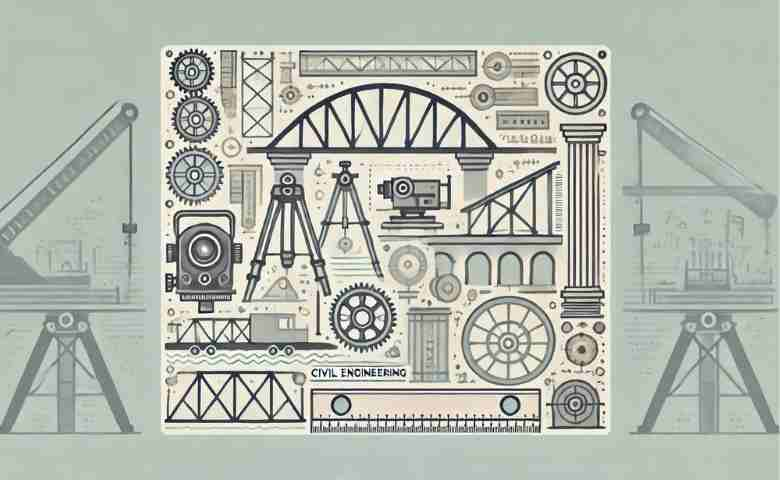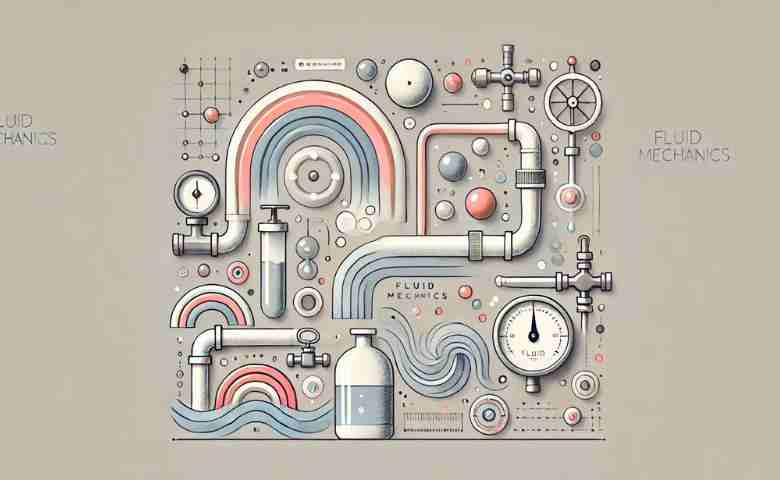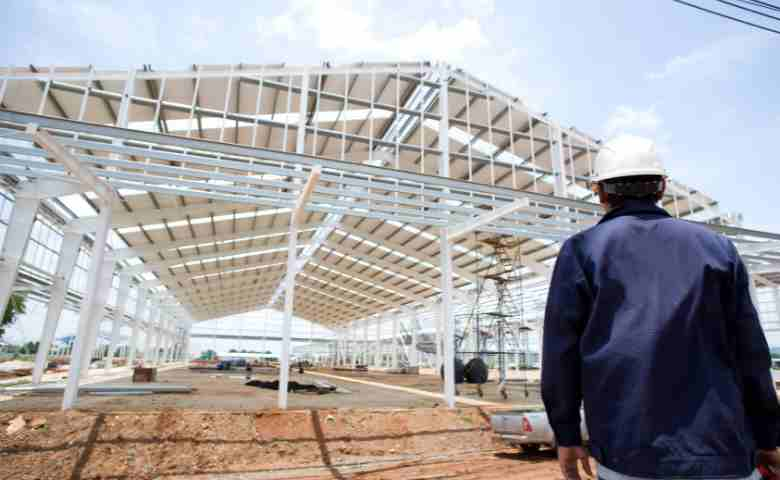Last Updated on July 22, 2025 by Admin
Civil Engineering is one of the broadest and oldest disciplines, extending across many technical specialties. It is a professional engineering discipline that deals with the design, construction, and maintenance of the physical and naturally built environment. Here you can find the complete list of the civil engineering subjects, civil engineering books, civil engineering topics, and civil engineering notes to be studied as a student from first to final year. A complete civil engineering syllabus for the B.E. and B.Tech course.
ConstructionCareerHub App is LIVE — built ONLY for construction careers. Don’t apply with a weak resume.
Get ATS-ready Resume Lab + Interview Copilot + Campus Placement Prep (resume screening, skill gaps, interview readiness) — in minutes & Other advanced features.
Explore Smarter Construction Career Tools →Quick check. Big impact. Start now.
Civil engineering is the study of infrastructure, including both natural and artificial. Civil engineers are responsible for planning, designing, constructing, and maintaining civil engineering works like roads, bridges, canals, tunnels, etc. A civil engineering degree is typically a bachelor’s degree in civil engineering. Civil engineers must keep themselves updated with new technologies and identify areas that need improvement.
Why Civil Engineering Is a Game-Changer in 2025’s Infrastructure Revolution
Civil Engineering stands at the forefront of transforming our world through sustainable infrastructure and innovative design solutions. As one of the oldest and most diverse engineering disciplines, it continues to evolve rapidly to meet the challenges of urbanization, climate change, and technological advancement.
Civil engineers are the masterminds behind the planning, design, construction, and maintenance of the physical and built environment—from iconic skyscrapers and bridges to sustainable water systems and resilient transportation networks. With a BE or B. Tech in Civil Engineering, you gain the expertise to create infrastructure that shapes human civilization.
Why Choose Civil Engineering in 2025
The landscape for civil engineers has transformed dramatically in recent years, making 2025 an ideal time to pursue this field:
Table of Contents
Global Infrastructure Boom
With governments worldwide investing trillions in infrastructure revitalization, civil engineers are in unprecedented demand. The Infrastructure Investment Act in the US alone has created over 500,000 new civil engineering positions since 2023.
Climate Resilience Leaders
Civil engineers now lead the charge in designing climate-adaptive infrastructure. As extreme weather events increase in frequency, these professionals develop solutions that withstand environmental challenges while reducing carbon footprints.
Digital Transformation Pioneers
Today’s civil engineers leverage cutting-edge technologies like AI-powered structural analysis, drone surveying, and digital twins—technologies that were merely experimental just five years ago but are now industry standards.
Sustainable Development Champions
With over 70% of new construction projects requiring net-zero or carbon-negative designs, civil engineers have become central to meeting global sustainability goals outlined in UN SDG frameworks.
Revolutionary Changes in Modern Civil Engineering Education
The 2025 curriculum represents a significant evolution from traditional programs, with several key transformations:
Integration of Sustainability Across All Subjects
Rather than treating sustainability as a separate course, modern syllabi integrate ecological principles throughout all subjects—from materials selection to structural design and urban planning.
Computational Thinking as Core Competency
Today’s courses emphasize algorithmic problem-solving and data analysis as fundamental skills, recognizing that tomorrow’s civil engineers must be equally comfortable with concrete and code.
Project-Based Learning Over Theory-Heavy Approaches
Modern programs have shifted from theoretical examinations to real-world projects, with many universities partnering with industry to give students hands-on experience with actual infrastructure challenges.
Interdisciplinary Collaboration
The boundaries between civil engineering and other fields—such as computer science, environmental science, and urban planning—have blurred, with coursework increasingly reflecting this integration.

Complete Civil Engineering Syllabus (B.E. / B.Tech / Diploma)
CE is a swiftly improving industry, constantly accommodating to a state of the art developments and affairs, such as pollution, water shortages, and sustainable energies. This list is also considered for the civil engineering subjects diploma. This course covers many scientific topics: mechanics, hydraulics, materials science, statistical analysis, etc. Complete a list of the civil engineering subjects. Students interested in pursuing a career in infrastructure and construction should familiarize themselves with the syllabus of B.Tech Civil Engineering to understand the breadth and depth of topics covered.
Civil engineers comprehend, design, build, supervise, operate, construct, support, and maintain infrastructure projects and systems in the public and private sectors, including roads, buildings, airports, tunnels, dams, bridges, and systems for water supply and sewage treatment. The syllabus of B.Tech Civil Engineering typically includes subjects like Structural Analysis, Environmental Engineering, and Geotechnical Engineering, providing a comprehensive foundation in civil engineering principles.
A Complete subject-wise syllabus for B.E.(Bachelor of Engineering ) and B.Tech.(Bachelor of Technology) and for degree & diploma students in civil engineering. Here is the syllabus for B.Tech Civil Engineering. Here is the list of civil engineering subjects for all semesters for studying civil engineering degree courses in India.
Related Posts:
- Civil Engineering Career: A Guide To Start Your Construction Career In 2025
- Civil Engineering Interview Questions and Answers PDF eBOOK
- Civil Engineering Seminar Topics List Updated 2025
- Building Material Subject Practice Test
- Civil Engineering Basics Skill To Become A Successful Civil Engineer
Civil engineering programs typically cover:
- Fundamentals like Mathematics, Physics, Chemistry, and Engineering Mechanics
- Core Subjects such as Structural Analysis, Geotechnical Engineering, Environmental Engineering, Fluid Mechanics
- Electives to explore niches like Earthquake Engineering, Construction Management, and Advanced Foundation Engineering
Below, you will find a semester-wise breakdown for both B.E./B. Tech and Diploma courses. This also applies to those seeking a Civil Engineering Diploma. Students should review the syllabus carefully to ensure it aligns with their career goals.

Complete Semester-by-Semester Syllabus Breakdown
First Year: Foundation Building
First Semester
- Engineering Mathematics-I (with Applications in Civil Engineering)
- Engineering Physics (Material Behavior Focus)
- Engineering Chemistry (Sustainable Materials Emphasis)
- Systems in Mechanical Engineering
- Basic Electrical & Electronics Engineering
- Programming Fundamentals for Engineers
- Workshop Practice & Digital Fabrication
Second Semester
- Engineering Mathematics-II (Statistical Methods)
- Applied Physics & Chemistry for Civil Applications
- Programming for Engineering Problem Solving
- Engineering Mechanics & Statics
- Engineering Graphics & BIM Fundamentals
- Project-Based Learning: Infrastructure Solutions
- Professional Skills Development

Second Year: Core Principles
Third Semester
- Building Technology & Sustainable Architecture
- Mechanics of Structures & Materials
- Fluid Mechanics & Hydraulic Systems
- Applied Mathematics for Civil Engineers
- Engineering Geology & Geospatial Analysis
- Awareness of Professional Practices & Ethics
Fourth Semester
- Advanced Geotechnical Engineering
- Modern Surveying & Remote Sensing Technologies
- Innovative Concrete Technology & Materials
- Structural Analysis & Computational Methods
- Digital Project Management & BIM Applications
- Project-Based Learning: Sustainable Design Challenge

Third Year: Advanced Applications
Fifth Semester
- Climate-Resilient Hydrology & Water Resources
- Infrastructure Engineering & Modern Construction
- Structural Design-I (Steel & Composite Structures)
- Advanced Structural Analysis & Simulation
- Hydraulic Engineering & Systems Design
- Industry Internship (Summer)
Sixth Semester
- Advanced Surveying & Spatial Data Analysis
- Project Management & Engineering Economics
- Sustainable Foundation Engineering
- Structural Design-II (Reinforced Concrete Structures)
- Environmental Engineering & Circular Systems
- Real-World Design Project
Fourth Year: Specialization & Innovation
Seventh Semester
- Advanced Environmental Engineering Systems
- Intelligent Transportation Engineering
- Structural Design-III (Advanced Applications)
- Elective-I (Specialization Track)
- Elective-II (Specialization Track)
- Capstone Project I
Eighth Semester
- Smart Infrastructure & Hydraulic Structures
- Professional Practice, Contracts & Ethics
- Elective-III (Specialization Track)
- Elective-IV (Specialization Track)
- Capstone Project II (Industry Collaboration)
Related Posts:
- Civil Engineering Career: A Guide To Start Your Construction Career In 2025
- Civil Engineering Diploma Courses: All You Want To Know
- Civil Engineering Fresher Jobs: Various Sectors to Find Jobs in 2025?
- What Is The Difference Between Civil Engineering and Architecture?
- SSC JE: What Section Would Be Easiest or Trickiest To Prepare For Candidates
This Civil Engineering Job Interview Guide with 300 Interview Questions and Answers PDF eBook will help you to land your dream job in the construction industry. Also, these are some of the most exciting Jobs for Civil Engineering Students to explore in 2025.

Specialized Electives for Modern Civil Engineers
Structural Engineering Electives
- Advanced Bridge Design & Resilience
- High-Performance Structural Systems
- Earthquake-Resistant Design & Analysis
- Computational Structural Optimization
Geotechnical Engineering Electives
- Advanced Foundation Solutions
- Geoenvironmental Engineering
- Ground Improvement Techniques
- Rock Mechanics & Underground Structures
Environmental Engineering Electives
- Net-Zero Water Systems
- Advanced Air Quality Management
- Waste-to-Resource Technologies
- Environmental Impact Assessment
Construction & Management Electives
- Digital Construction Management
- Lean Construction Methodologies
- Construction Risk Analysis
- Infrastructure Asset Management
Emerging Technology Electives
- Machine Learning in Civil Engineering
- Parametric Design for Infrastructure
- IoT Applications in Smart Infrastructure
- 3D Printing for Construction
Related Posts:
- Latest Construction Jobs, Civil Engineering Jobs
- Best Civil Engineering Software Updated List 2025
- Government Engineering Jobs | Application Deadlines
- Top 10 Civil Engineering Blogs To Follow In 2025
Cutting-Edge Specializations That Define the Future
Civil Engineering has evolved beyond traditional roles, with these specializations seeing the highest demand in 2025:
Smart Infrastructure Engineering
Focused on integrating IoT, sensors, and data analytics into physical infrastructure to create responsive, efficient systems that adapt to usage patterns and environmental conditions.
Resilience Engineering
Specializing in designing infrastructure that can withstand and quickly recover from natural disasters, climate change impacts, and other disruptions.
Sustainable Urban Systems
Combining civil engineering with urban planning to create holistic solutions for smart cities, focusing on efficiency, livability, and ecological impact.
Transportation Innovation
Developing next-generation mobility solutions, including infrastructure for autonomous vehicles, hyperloop systems, and integrated multi-modal transportation networks.
Computational Design & Digital Fabrication
Leveraging parametric design, generative algorithms, and advanced manufacturing to create optimized structures with minimal material waste.
Industry 4.0 Technologies Reshaping Civil Engineering
The digital revolution has transformed how civil engineers work, with these technologies now standard in the industry:
Digital Twins & BIM 3.0
Virtual replicas of physical infrastructure that simulate performance, predict maintenance needs, and optimize operations throughout the entire lifecycle.
AI-Powered Design Optimization
Machine learning algorithms that can generate thousands of design alternatives and identify optimal solutions based on multiple constraints and performance criteria.
Robotic Construction Systems
Autonomous and semi-autonomous construction technologies that enhance precision, reduce labor requirements, and enable complex geometric forms previously impossible to build.
Advanced Materials Science
Engineered materials with properties like self-healing, carbon sequestration, and adaptive response to environmental conditions, revolutionizing durability and sustainability.
Real-Time Monitoring Systems
Networks of sensors that continuously assess structural health, environmental conditions, and usage patterns, enabling predictive maintenance and performance optimization.
Civil Engineering Books
The list of the most important civil engineering books for students and civil engineers for the tech civil Engineering syllabus.
- Advanced Environmental Management
- Advanced Foundation Engineering
- Advanced Geotechnical Engineering
- Advanced Structural Design
- Advanced Surveying
- Air Pollution And Control
- Architectural Planning And Design Of Buildings
- Architecture And Town Planning
- Building Technology And Materials
- Concrete Technology
- Construction Management
- Dams And Hydraulic Structures
- Earthquake Engineering
- Engineering Geology (Civil Engineering subjects)
- Engineering Geology With Rock Mechanics
- Environmental Engineering-I
- Fluid Mechanics-I
- Fluid Mechanics-II
- Foundation Engineering
- Geotechnical Engineering
- Hydroinformatics
- Hydrology And Water Resource Engineering
- Matrix Methods Of Structural Analysis
- Project Management And Engineering Economics
- Strength Of Materials
- Structural Analysis I
- Structural Analysis II
- Structural Design I
- Structural Design –II
- Structural Design Of Bridges
- Surveying (Civil Engineering subjects)
- Systems Approach In CE
- Tqm And Mis In CE
- Water Resources Planning & Management
Career Pathways and Salary Potential in 2025
The evolution of civil engineering has created diverse career paths with competitive compensation:
High-Growth Career Paths
- Resilience Engineer: ₹8-15 LPA (Entry) to ₹25+ LPA (Senior)
- Computational Design Specialist: ₹9-16 LPA (Entry) to ₹30+ LPA (Senior)
- Sustainable Infrastructure Consultant: ₹7-14 LPA (Entry) to ₹28+ LPA (Senior)
- Smart City Systems Engineer: ₹9-18 LPA (Entry) to ₹32+ LPA (Senior)
- Digital Construction Manager: ₹8-15 LPA (Entry) to ₹26+ LPA (Senior)
Traditional Roles with Modern Evolution
- Structural Engineer: ₹6-12 LPA (Entry) to ₹20+ LPA (Senior)
- Geotechnical Engineer: ₹5-10 LPA (Entry) to ₹18+ LPA (Senior)
- Transportation Engineer: ₹6-11 LPA (Entry) to ₹22+ LPA (Senior)
- Environmental Engineer: ₹5-10 LPA (Entry) to ₹20+ LPA (Senior)
- Project Manager: ₹8-15 LPA (Entry) to ₹30+ LPA (Senior)
Essential Skills Beyond the Classroom
To truly excel in today’s civil engineering landscape, these competencies have become non-negotiable:
Technical Skills
- Computational Thinking: Ability to frame problems algorithmically and leverage data science for engineering solutions
- Advanced Simulation: Proficiency with FEA, CFD, and other simulation tools for performance prediction
- Parametric Design: Experience with generative design tools that can optimize for multiple constraints
- Sustainability Analysis: Capability to conduct lifecycle assessments and carbon footprint analyses
Software Proficiency
- BIM Platforms: Autodesk Revit, Bentley Systems, Graphisoft ArchiCAD
- Analysis Tools: ETABS, SAP2000, STAAD Pro, ANSYS
- Parametric Design: Grasshopper, Dynamo, Generative Design
- GIS Applications: ArcGIS, QGIS, Google Earth Engine
- Programming: Python, R, MATLAB for data analysis and automation
Soft Skills & Business Acumen
- Systems Thinking: Ability to understand complex interactions and consequences
- Interdisciplinary Collaboration: Experience working across disciplines with diverse stakeholders
- Ethical Decision-Making: Commitment to social and environmental responsibility
- Project Economics: Understanding financial implications and business case development
- Effective Communication: Skill in translating technical concepts for non-technical audiences
Top Civil Engineering Specializations
Civil Engineering offers a range of specializations to suit your interests:
- Structural Engineering – Focus on the design and analysis of buildings, bridges, and other structures.
- Geotechnical Engineering – Study soil and rock mechanics for designing foundations and earthworks.
- Transportation Engineering – Plan and design roads, railways, airports, and transit systems.
- Environmental Engineering – Address issues related to pollution control, water treatment, and waste management.
- Water Resources Engineering – Focus on hydrology, hydraulic systems, irrigation, and flood management.
- Construction Management – Oversee project planning, execution, budgeting, and resource management.
- Earthquake Engineering – Design resilient structures in seismically active regions.
- Coastal Engineering – Work on shoreline management, ports, and coastal protection structures.
Additional Skill Development and Practical Exposure
Civil Engineering education isn’t limited to classroom theory. Employers increasingly value practical skills and hands-on experience. Here’s what you can do:
- Lab Work: Engage deeply with laboratory experiments in soil mechanics, fluid mechanics, materials testing, etc.
- Software Proficiency: Learn industry-standard tools like AutoCAD, STAAD Pro, Revit, SAP2000, and MATLAB.
- Workshops and Competitions: Participate in hackathons and technical competitions to solve real-world problems.
- Soft Skills: Focus on communication, leadership, and project management skills to excel in teamwork and client interactions.
Future Trends and Technologies in Civil Engineering
By 2025, several cutting-edge technologies and trends are expected to reshape Civil Engineering:
- Building Information Modeling (BIM) – Enhanced 3D/4D modeling tools for better collaboration and project management.
- Green Construction Materials – Sustainable alternatives like recycled aggregates, self-healing concrete, and geo-polymers.
- IoT and Smart Sensors – Real-time monitoring of infrastructure for predictive maintenance.
- Drones and Aerial Surveying – Faster data collection and surveying for large-scale projects.
- AI and Data Analytics – Machine learning for structural health monitoring, risk assessment, and complex simulations.
- Modular and Prefabricated Construction – Offsite fabrication to reduce cost and time and enhance quality control.
- 3D Printing of Buildings – An emerging technique for faster and more sustainable construction.
Career Options and Job Outlook in 2025
Civil Engineering offers diverse career pathways in both public and private sectors. Some key roles include:
- Structural Engineer – Designing and analyzing structures, ensuring their safety and functionality.
- Project Manager – Overseeing budgets, timelines, and teams to ensure successful project completion.
- Site Engineer – Handling on-site operations, coordinating workforce, and ensuring compliance with standards.
- Quality Control/Quality Assurance Engineer – Monitoring construction quality and maintaining documentation.
- Environmental Engineer – Implementing eco-friendly solutions for water treatment, waste management, and pollution control.
- Transportation Engineer – Planning and designing roads, highways, and mass transit networks.
- Water Resources Engineer – Working on dams, canals, flood defense, and water supply management.
Explore these valuable resources on the Construction Job Titles and Descriptions In The Construction Industry.
Job Outlook: Rapid global urbanization, emphasis on sustainable infrastructure, and significant government spending on public projects are all positive signs for strong job growth in this sector.
Salary and Growth Potential
- Entry-Level Salaries: In India, fresh civil engineering graduates can expect an annual salary ranging from INR 3 LPA to 5 LPA. Internationally, this can go higher depending on the country’s demand and cost of living.
- Mid-Career Growth: Experienced civil engineers with specialized skills (e.g., structural design, BIM expertise) can earn significantly higher salaries.
- Long-Term Potential: With leadership roles or consultant status, salaries can range upwards of INR 15 LPA or more. Additional certifications (PMP, LEED, etc.) further boost career prospects.

Global Opportunities and Further Studies
Civil engineers are in demand worldwide. Consider pursuing:
- Master’s Programs: Specialize in Structural Engineering, Construction Management, or Sustainable Engineering at top international universities.
- Certifications: Enhance your profile with professional certifications like LEED AP, PMP (Project Management Professional), or PE (Professional Engineer) in countries like the USA.
- Research and Ph.D.: If you are inclined toward academia or R&D, explore Ph.D. programs that delve deeper into cutting-edge topics like earthquake engineering or innovative materials.
Actionable Tips for Students and Educators
For Students:
- Stay Updated: Regularly follow industry news and updates on sustainable practices.
- Hands-on Learning: Engage with simulation software and practical projects.
- Networking: Join professional forums and local chapters of civil engineering societies.
For Educators:
- Curriculum Integration: Update course materials to include case studies on recent projects.
- Interactive Sessions: Incorporate webinars and guest lectures from industry experts.
- Digital Resources: Leverage online platforms for interactive learning and collaborative projects.
Final Thoughts
Are you ready to embark on a career that literally builds the future? The 2025 Civil Engineering curriculum offers an unprecedented opportunity to develop expertise that combines centuries-old engineering principles with cutting-edge technology and sustainability practices.
Explore our related resources to deepen your understanding of this dynamic field and prepare for your journey as a modern civil engineer:
- Civil Engineering Career Guide: Pathways to Success in 2025
- Essential Software Skills for Modern Civil Engineers
- Sustainable Construction Technologies Transforming the Industry
- Digital Tools Revolutionizing Civil Engineering Practice
Civil engineering, commonly abbreviated as “BE in civil engineering,” is a comprehensive field of study that covers the design, construction, and maintenance of the physical and naturally built environment. The curriculum for a Bachelor of Engineering in civil engineering is extensive, encompassing a variety of subjects to equip students with the necessary skills and knowledge.
The “Civil Engineering Subjects” form the core of this curriculum, tailored to provide a deep understanding of the principles and practices in civil engineering. The “Civil Engineering Syllabus” is carefully structured to cover all essential areas of the field, ensuring a well-rounded education for aspiring civil engineers.
Related Posts:
- Engineering Mechanics Interview Questions Free Online Practice Test
- Top 10 Most Popular Free Online Business Courses For 2025
- Civil Engineering GATE Syllabus For GATE Examination
- Construction Engineering and Management: Courses and Career
In the “subjects in civil engineering 1st year,” students typically encounter foundational topics that introduce them to the basics of civil engineering. These foundational subjects are crucial for building a strong base for more advanced studies in later semesters. The “civil engineering subjects list all semester” includes a diverse range of topics, from structural engineering to environmental engineering and construction management.
High school students interested in pursuing this field can start early with “civil engineering subjects in 11th,” which generally include introductory topics that prepare them for college-level coursework. As students progress to the “civil engineering subjects 2nd year,” the curriculum becomes more specialized, delving into specific areas of civil engineering.
For those pursuing a diploma, “civil engineering subjects diploma” offer a more focused and practical approach to the field. The “civil engineering subjects in first year PDF” resources provide detailed information on the course content and structure, making it easier for students to understand what to expect in their studies.
“Civil engineering subjects in college” are more advanced and specialized compared to “civil engineering subjects in high school,” with a greater emphasis on technical proficiency and practical skills. Courses like “mechanical engineering subjects” and “computer engineering syllabus” are also integral parts of the broader engineering curriculum, providing students with a multidisciplinary perspective.
A key aspect of this field is the lucrative “civil engineering salary,” which is a motivating factor for many students. Detailed course materials, such as “Civil engineering subjects 1st year PDF,” help students understand the complexities of these subjects early in their academic journey.
The “civil engineering syllabus for 1st year” lays the foundation for further studies, while the “civil engineering syllabus diploma” and “polytechnic civil engineering syllabus” cater to the diploma level education. For those pursuing a Bachelor of Technology, the “b.tech civil engineering syllabus PDF” and “civil engineering syllabus b tech” provide comprehensive details of the course content.
As students advance to higher semesters, they encounter specific modules like “civil engineering syllabus 3rd semester” and “basic civil engineering syllabus.” These syllabi are designed to progressively introduce students to more complex concepts and practices in the field.
In parallel, other engineering disciplines, such as “mechanical engineering syllabus” and “computer engineering syllabus,” offer different perspectives and skills. “Engineering subjects in college” cover a broad range of topics, providing students with a well-rounded education.
For easy access to course content, “Civil engineering syllabus PDF download” options are available, offering students the convenience of studying the syllabus digitally. The “Civil engineering syllabus 1st year” is particularly important for freshmen, as it introduces them to the field and sets the tone for their entire engineering education. Overall, the civil engineering curriculum is designed to prepare students for the challenges and opportunities in the field of civil engineering, equipping them with the necessary skills to succeed in their professional careers.
Students who aspire to make their career in Civil Engineering could find the Civil Engineering subjects, topics, eligibility criteria, fees, career options, scope, certifications, salary, civil engineering-related news articles, links, and valuable information for students and construction professionals on our website www.constructionplacements.com. You can also check here the mechanical engineering syllabus for mechanical engineering subjects.
FAQs: Everything You Need to Know
The 2025 curriculum integrates sustainability principles throughout all subjects, emphasizes computational thinking as a core competency, utilizes project-based learning with real-world applications, and incorporates emerging technologies like AI, digital twins, and advanced materials science.
A complete BE/B.Tech program typically includes 40–45 subjects across eight semesters, comprising core engineering fundamentals, specialized civil engineering courses, electives, and practical components including laboratory work and design projects.
First-year foundational subjects include Engineering Mathematics, Engineering Physics (with focus on material behavior), Engineering Chemistry, Programming Fundamentals, Engineering Mechanics, and Engineering Graphics with BIM foundations—all tailored specifically for civil engineering applications.
The highest-growth career paths include Resilience Engineering, Computational Design, Sustainable Infrastructure Consulting, Smart City Systems Engineering, and Digital Construction Management—all commanding premium salaries and experiencing strong demand.
Civil Engineering is experiencing unprecedented demand due to global infrastructure investment initiatives, climate resilience requirements, smart city developments, and sustainability mandates. The Bureau of Labor Statistics projects a 25% growth in specialized civil engineering roles through 2030.
Admission typically requires clearing entrance examinations such as JEE Main, JEE Advanced, or state-level engineering entrance tests. Top institutions may have additional requirements including interviews or portfolio assessments for specialized programs.
Technology has revolutionized the field through Building Information Modeling (BIM), AI-powered design optimization, digital twins for asset management, advanced simulation capabilities, drone and LiDAR surveying, IoT-enabled infrastructure monitoring, and automated construction systems.
Specializations with exceptional job prospects include Smart Infrastructure Engineering, Resilience Engineering, Sustainable Urban Systems, Transportation Innovation, and Computational Design—all addressing critical challenges in modern infrastructure development.


